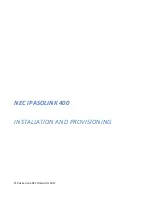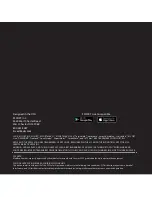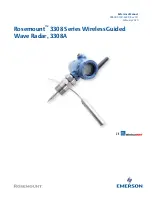
11
connected to the single coaxial cable centre conductor. The ODU can be mounted up to 500 metres from
the IDU, when a high-quality (e.g. ½ inch low-loss) coaxial cable is used.
AVAILABLE CONFIGURATIONS
UNPROTECTED HOP
The most basic configuration is a 1+0 or unprotected hop between a pair of modems. A single iPasolink 400
IDU can have up to four (4) 1+0 connections to separate sites. In this maximum configuration four ODUs,
four antennas and four coaxial cables are needed together with one IDU and four modems.
PROTECTED CONFIGURATIONS
If the requirement for the service restoration time after a failure is very strict, there is no time to go to the
site to replace the failed unit. In some cases the Service Level Agreement (SLA) does not allow any service
interruption caused by equipment failures. In such cases a 1+1 protected hop can be used. Both
transmitters may be transmitting always, each using a separate channel (frequency diversity, twin path).
Alternatively the spare transmitter is activated and the main transmitter muted only during a transmitter
failure (hot standby). In both solutions the receivers and demodulators are always activated and the IDU
will select the better (less bit errors) signal for processing.
The reliability (MTBF) of iPasolink is very high, which means that the traffic MTBF of the 1+1-solution is
extremely high, provided that the first fault is repaired within a reasonable time (within a few days). The
main disadvantage - in addition to double equipment cost - of the 1+1-solution is that the number of
equipment faults will double compared to the 1+0 solution. As an expample: if the equipment MTBF of a
1+0 hop is 100 years, then the MTBF of a 1+1 hop is approximately 50 years. But the traffic MTBF of a 1+1
hop could be perhaps 1000 years, however, depending on the fault repair time. Another disadvantage of
the 1+1 twin path solution is that only 50% of available capacity per MHz is in actual use.
ETHERNET PROTECTION USING 2+0 OR XPIC 1+0
A more cost efficient solution to protect Ethernet connections is to use 2+0 (or XPIC 1+0) on the same hop.
The traffic is then distributed between two modems and ODUs. The normal capacity could be as high as
800 Mbit/s. In case of a failure of an ODU, as an example, the traffic may still use the other ODU at 400
Mbit/s.
It is possible to use a dual-polarised antenna with XPIC (Fig. 7). It should be noted that the partial
equipment protection using “1+0 XPIC” is not fully automatic: the non-functional side transmitter has to be
muted manually in order to operate the remaining side at full speed.
RADIO TRAFFIC AGGREGATION
Radio traffic aggregation (RTA) to a single external Ethernet external interface can be done at L2 or L1 level.












































